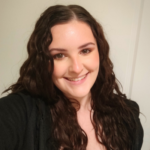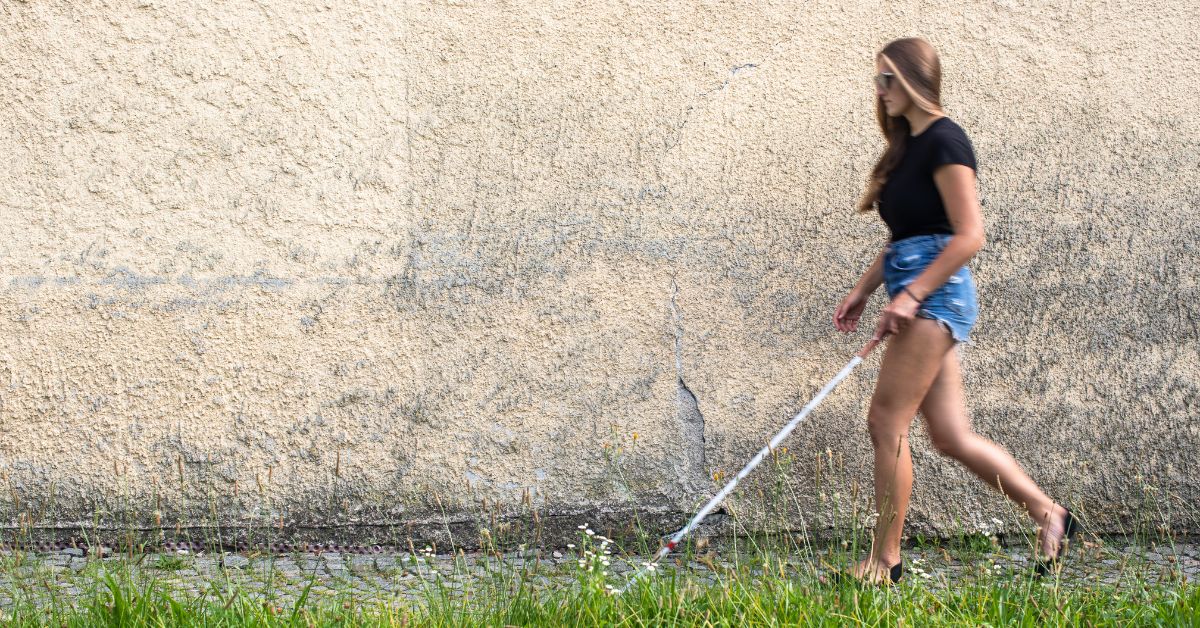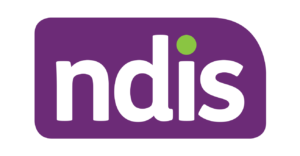Written by Bethany Cody.
An NDIS plan means everything to me. It would allow me to afford orientation and mobility training with my white cane (my local organisation for the blind otherwise charge an eye-watering, financially inaccessible fee for their services). I’ve had three lessons with a national organisation, but, due to shortages of orientation and mobility trainers where I live, they’ve had to fly them in from interstate and the wait between lessons is long.
As a result, my skills are not as sharp as they could be, and I don’t feel as secure in my knowledge and ability. I often decide not to use my white cane and suffer through trips, falls and collisions with strangers out in public, risking my safety and contributing to my lack of self-confidence.
An NDIS plan would mean freedom, independence, autonomy and getting on with my life confidently. I could access things like liquid level indicators so I can confidently make myself and others a cup of tea. I could have magnifiers so that I can read print books, something I’ve loved since childhood and is important to me as a writer. I could access counselling for the never-ending grief that comes with progressive, permanent blindness, and connect with others on a similar journey to my own.
The NDIS saves disabled lives. By funding vital supports and services, people with disabilities thrive. We lead safe and fulfilling lives. When we are supported to navigate the barriers society has created for disabled people, we become independent and social; participating in our communities, working, creating and flourishing.
The NDIS is unlike any other governmentally funded program for disabled people in Australia or overseas. It must be protected and safeguarded against naysayers who have no or little experience with being disabled, and blatantly disregard the safety, value and rights of disabled people.
However, the process of accessing the NDIS is tumultuous and tiring. Personally, I’m still stuck in limbo, waiting to hear whether I’ve been accepted or rejected for the second time. They’ve taken two weeks to acknowledge the receipt of my identity documents, only to say they need more evidence that I do in fact exist and am who I say I am. A lot of importance is put on having a driver’s license, which is frustrating because a lot of people don’t drive, myself included. We are made to feel less valid and to jump through more hoops to prove who we are. The process is demoralising.
It’s also been drawn out over months, as they ask for what they require in dribs and drabs. Time that could have been halved if they gave people a list of acceptable forms of ID on the initial Access Request Form.
The language used in NDIS materials is also a huge barrier. It’s bureaucratic and needlessly wordy. It feels like it was designed to disincentivise disabled people from understanding what the program is and how we can access help. The high turnover rate of NDIS staff and Local Area Coordinators leaves many disabled people feeling a sickening sense of déjà vu, having to repeatedly explain ourselves and our needs to strangers who don’t know us as anything but a name and number on a piece of paper. Disabled people are treated as a monolith, instead of incredibly diverse and individual people with our own unique personalities, histories, needs and desires.
Having a disability is costly. We require specialised equipment and services to get around the barriers that society has put in place for us, just to lead healthy, safe lives. Disabled people often earn less than non-disabled people, further putting us at a disadvantage in being able to survive and thrive. We often have higher medical needs and are charged more for seeing specialists and buying medical supplies that ensure our quality of life.
But disabled people are people. We have the same rights as your family, your friends, neighbours, co-workers, even your bosses, to be safe, independent and happy – to be adventurous, to give and receive love, be ambitious, creative and fully experience what this life is all about.
The NDIS is an indescribably important program which gives these experiences to disabled people. I believe that when the issues with the NDIS are addressed and rectified, it will be capable of delivering on what it was originally intended to do, which is to ensure that disabled people are safe, independent, respected, treated with dignity, and able to participate in our society just like non-disabled people.

About the author:
Bethany Cody is a blind, Adelaide-based writer and disability advocate. She uses her lived experience with Retinitis Pigmentosa, an inherited retinal disease, to dismantle harmful stereotypes about blindness.







